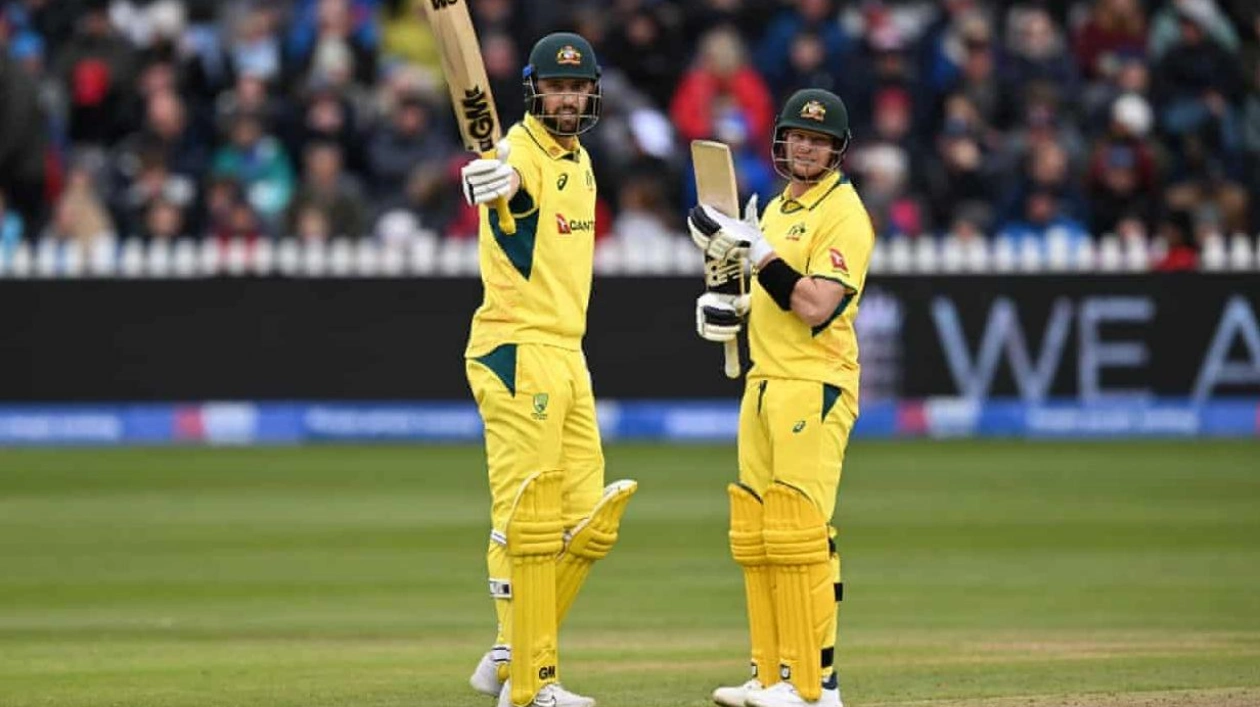In the end, it was an unusual way to conclude an unusual white-ball tour. Steve Smith captained a one-day match in Bristol in place of Mitchell Marsh, who was captaining in place of Pat Cummins, but whose previous absence in a T20 had been filled by Travis Head. Matt Short replaced Marsh as opener, having been replaced by Marsh a match earlier, after replacing Marsh for two games after Marsh had replaced Short from the T20s. Cooper Connolly got his second game in Australian colors but still didn't get a chance to bat.
It was an odd game watching Australia race against time and the autumn clouds, trying to face 20 overs of the chase before rain ended the day, needing to stay ahead of the required tally to be awarded a score-projection win and take the series 3-2 if the rain came. Rain arrived four balls after the required overs were reached. A flurry of striking from Short, Smith, and Josh Inglis lifted them to 165-2, enough for the mathematicians to deduce that 144 from 30 overs was within Australia’s reach to assume they could match England’s 309. This omits the possibility of a change in trajectory like the one England’s innings suffered, but it’s the cost of statistical analysis.
Rain has been a major topic of discussion. The online complaints department has spent weeks expressing indignation that cricket was being played in September, despite the fact that cricket has been played in September for years, from the first Test on English soil in 1880 to the one-day series against Ireland in 2023. Yet, in a reminder that the digital world doesn't always reflect reality, every match this year was sold out, and seven of eight had a result. The season of mists and mellow fruitfulness may have bewildered Monty Panesar, and may have shown more challenges than the poem suggests, but it didn't deter any fans from attending.
The forgetfulness of cricket's past extended to the current season, with various people blaming The Hundred, one of England’s domestic competitions, for displacing the Australian series, while ignoring the unusual factor that the senior England team spent the entire month of June in the Caribbean playing a T20 World Cup. June is generally a good month for hosting international cricket. And yes, in England, it can rain in June too. And July, and August. During this year’s damp season, it rained in all three months.
But autumn was the season for narratives that were as substantial as September mist. Local press framed the ODI contest as their country’s young side against the seasoned champions, but World Cup winners Josh Hazlewood, Head, Mitchell Starc, Glenn Maxwell, and Inglis all missed games. Starc struggled and Maxwell scored few runs. Only Smith and Marnus Labuschagne played all five matches, for two half centuries between them. The inexperienced Short was relied on for fast starts. Discarded keeper Alex Carey returned due to injury to stabilize the middle order. The fast bowling combination for the first ODI was Aaron Hardie, Sean Abbott, Cameron Green, and Ben Dwarshuis, who got injured after four overs. Australia won anyway. If those names don't evoke awe, there's a reason why. Two of Australia’s three wins came from dousing a fiery England innings with the meager trickle of part-time spin.
There were lessons to be learned throughout, for better or worse. Western Australian all-rounder Hardie, with a handful of matches to his name, made vital runs with some straightforward hitting and showed moments of class with the ball. He is one for the future, and perhaps for the present. Abbott is too easily targeted. Starc has ground to cover to regain his best form. Inglis has a knack for runs but Carey hasn't lost his batting class. Zampa has remarkable resilience. Head is operating on a different level. Short has earned a chance at the top, but we know nothing more about whether Jake Fraser-McGurk can succeed.
That is the main disappointment about Australia’s tour: not finding out more about newer players. Dwarshuis, Spencer Johnson, Xavier Bartlett, Nathan Ellis, and Riley Meredith might each have played a part if not for injuries. Fraser-McGurk and Connolly are prodigies but sat on the bench unused. Results aside, it would have been worth seeing what they could do. If these games are about entertainment, nothing entertains like the new. But at least, before football dominates England as the seasons deepen toward winter, and the Australians head toward our own southern summer, an autumn provided something for the crowds that wanted it.






